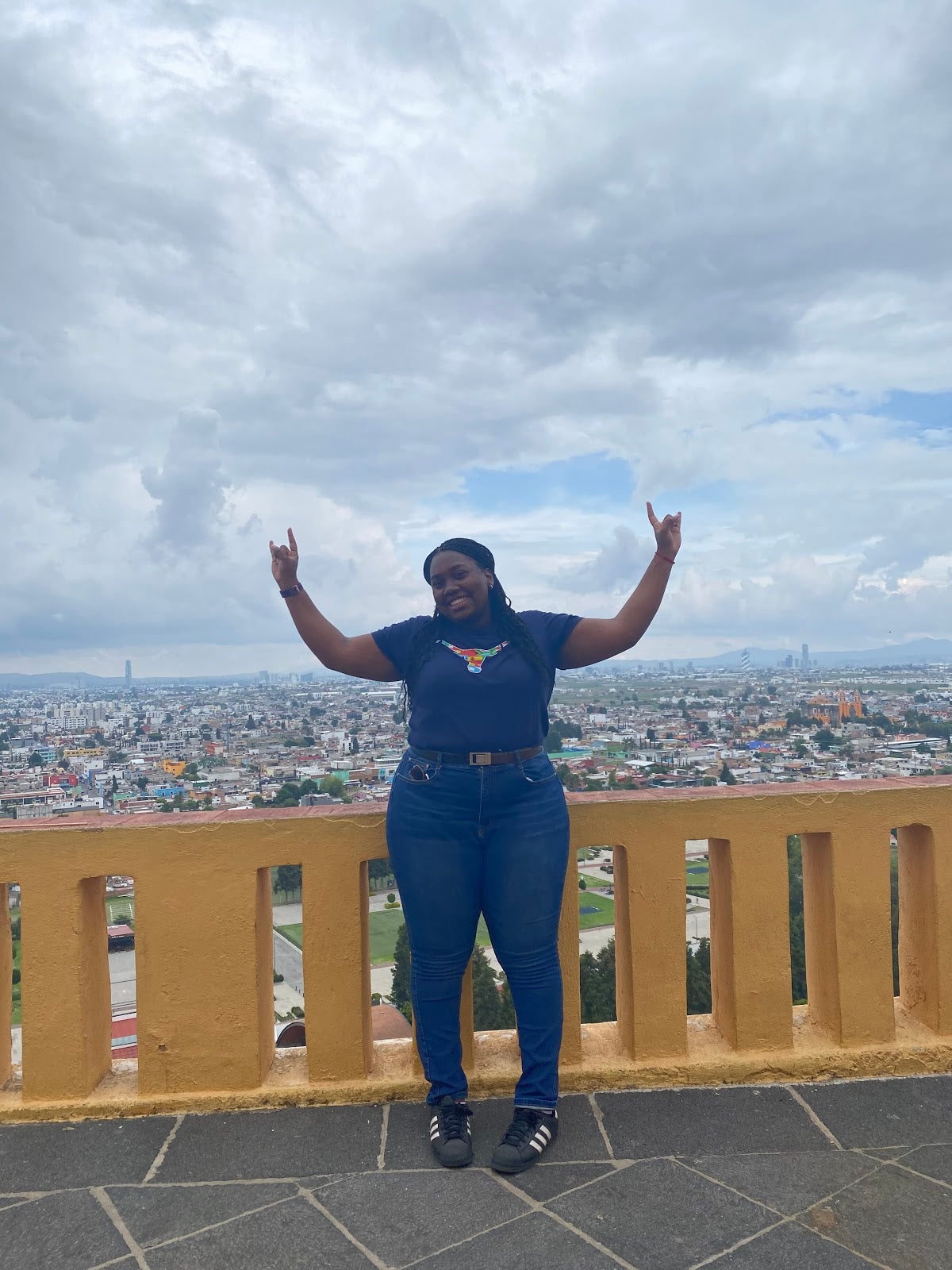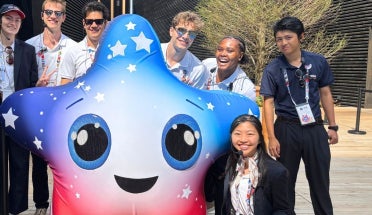
Project MALES Initiative Takes First Program Abroad in 2021
- Aug 12, 2021
- Education Abroad
- by Jenan Taha
2021 has been a landmark year for the leaders of Project MALES. Celebrating the 10th anniversary of their initiative to support Latinx educational success through mentorship and research, the interdisciplinary group of faculty, students and staff also accomplished something few others on campus did this year. Executive director and co-founder Victor B. Sáenz worked diligently alongside program director Emmet Campos, navigating numerous global challenges to lead one of five in-country May Term programs this year, in Puebla, Mexico.
Housed within the Division of Diversity and Community Engagement, Project MALES (Mentoring to Achieve Latino Educational Success) is a research-based initiative that includes a research institute, education consortium and student mentorship program. Founded in 2011 by Sáenz and associate professor Luis Ponjuán of Texas A&M University, Project MALES has had a nationwide impact but had not expanded its work internationally until now.
Latinx and Black students study abroad at a fraction of the rate of their white counterparts. Seeing this underrepresentation of students of color in study abroad programs and knowing the powerful opportunity international education provides, the next logical step for Project MALES team leaders was to extend into Latin America and offer students a broader context of the influences that shape Latinx identity.
“I really believe that learning has to happen not just in the classroom, but certainly outside the classroom—and there's no better classroom than the world itself,” Sáenz said. “Nothing beats the educational opportunity that a study abroad course can provide. There's so much we can learn from the culture, people and history across all of the Americas.”
After a site visit to Universidad de las Américas Puebla (UDLAP) in 2019, Sáenz and Campos worked with Texas Global to create a new study abroad program, Latinx Identities Across the Americas. Following months of preparation, the group of students and faculty were ready to go abroad in Spring 2020 but were forced to pause the program due to COVID-19.
This year, the faculty program leaders were determined to work through pandemic restrictions and adjust their program to take their group abroad safely while still affording students a transformative in-country experience.
“We were committed to this,” Campos said. “We could have just bailed at any point. This is how we do things—we don't give up. We have an expression in our culture about doing it with ganas, doing it with guts and persevering [with] heart and passion. And so, it was partly driven by that.”
“We were committed to this,” Campos said. “We could have just bailed at any point. This is how we do things—we don't give up. We have an expression in our culture about doing it with ganas, doing it with guts and persevering [with] heart and passion. And so, it was partly driven by that.”
Campos and Sáenz also emphasized the resilience of their faculty partners at UDLAP, who went to great lengths to support the group and navigate COVID-19 restrictions in Mexico to provide an exceptional program for students.
During the four-week program, the course focused on the topic of masculinity in the U.S. and Mexico and introduced students to emergent research on Latinx identity in K-12 and higher education. The group visited several cultural and historic sites in and around Puebla, such as Museo Nacional de Antropología in Mexico City, and participated in service-learning projects with local organizations.
Despite the limitations of the pandemic, Sáenz says students walked away transformed by their experience abroad.
“Puebla is one of the longest continuously settled communities in all the Americas,” Sáenz said. “We were literally in areas of the world that people have lived and worked and studied for centuries and centuries; just to think that we would have that opportunity to learn in a place like that—I think that's such an amazing opportunity for students.”
One of those students was Kenedi Houston, a political communications junior with a minor in African diaspora studies, Latin studies and a business Spanish certificate. When Houston was given the opportunity to apply to the Latinx identities May Term, she says she was thrilled to have another chance to go abroad after her previous program was canceled.
 “My experience with Dr. Campos and his team was awe-inspiring,” Houston said. “Mexico is a beautiful country, and its culture and people are what draw me to the Latin community. My most poignant moments were visiting the Museo Amparo and Biblioteca Palafoxiana in Puebla, climbing the hill to the church in Cholula, and walking in the ancient city of Teotihuacan near Mexico City. These experiences are special to me because the weight of the history I examined is very powerful.”
“My experience with Dr. Campos and his team was awe-inspiring,” Houston said. “Mexico is a beautiful country, and its culture and people are what draw me to the Latin community. My most poignant moments were visiting the Museo Amparo and Biblioteca Palafoxiana in Puebla, climbing the hill to the church in Cholula, and walking in the ancient city of Teotihuacan near Mexico City. These experiences are special to me because the weight of the history I examined is very powerful.”
Houston is part of UT’s Fearless Leadership Institute (FLI) supporting African American women and Latinas. She says her global experiences have inspired her to take on more international opportunities.
“Growing up in a mixed community of Black and brown students in Dallas has encouraged me to lend my voice to issues surrounding diverse communities,” she said. “As a member of FLI, I have learned to use my voice to encourage other students to pursue all the global opportunities here at UT. [Texas Global] has allowed me to not be afraid of perceived stereotypes of Black women traveling, but to embrace my uniqueness. UT's motto that we ‘change the world’ has never been more true.”
Witnessing the positive impact the May Term had on students, Sáenz and Campos emphasized the need for international programs, especially those serving students of color.
“We create opportunity for our students of color to travel abroad because if you don't have programs like this, students aren’t going to travel abroad,” Campos said. “The way that Dr. Sáenz and I look at it is: it's about creating an opportunity and a space for students to be able to have that experience.”
Sáenz and Campos plan to lead their program again in Spring 2022. Learn more about the Latinx Identities Across the Americas May Term.



